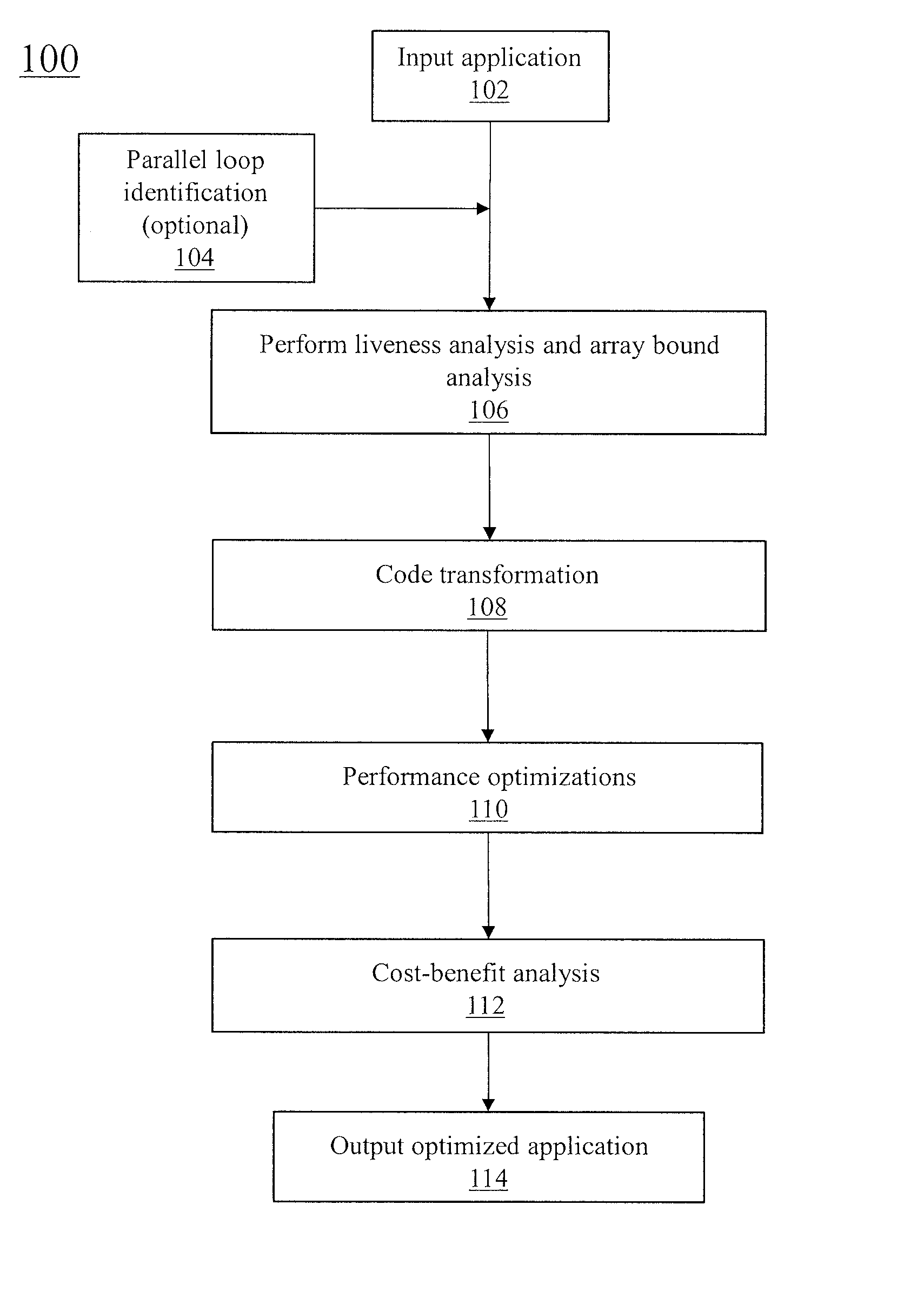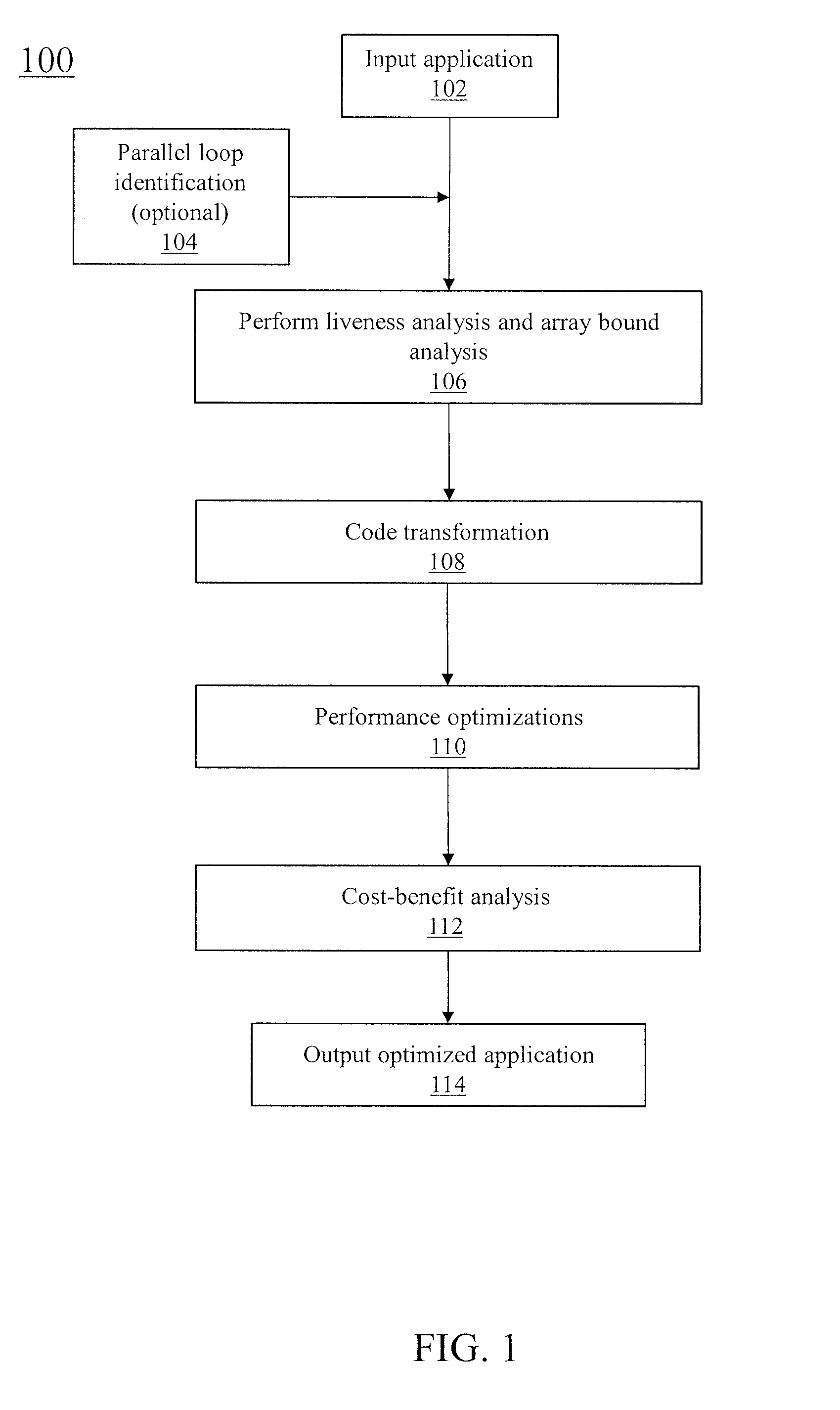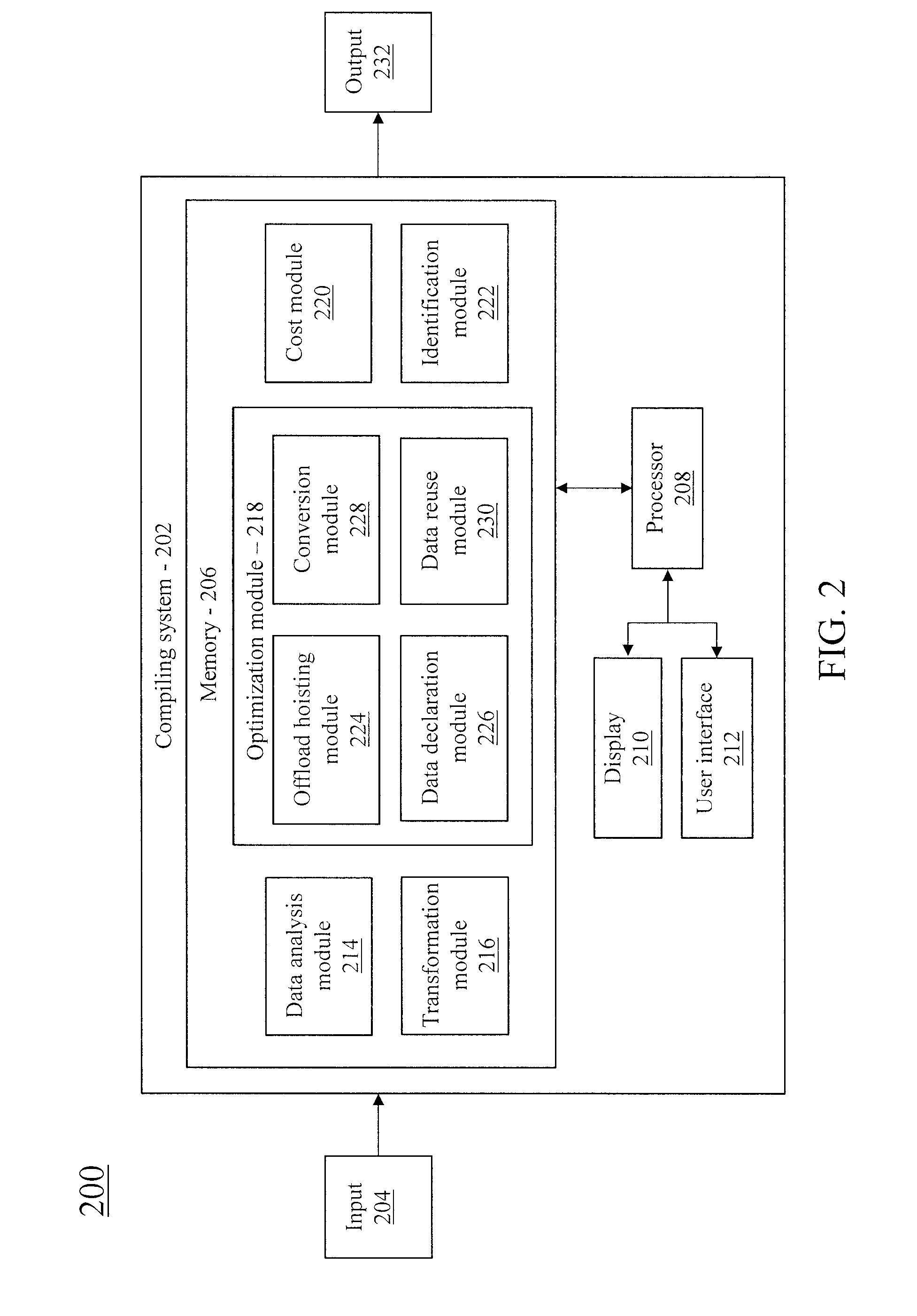Compiler for x86-based many-core coprocessors
a compiler and coprocessor technology, applied in the field of compilers, can solve problems such as requiring significant developer effort and experimentation to maximize performan
- Summary
- Abstract
- Description
- Claims
- Application Information
AI Technical Summary
Benefits of technology
Problems solved by technology
Method used
Image
Examples
Embodiment Construction
[0018]In accordance with the present principles, a compiler for x86-based many-core coprocessors is provided to port legacy applications to benefit from many-core architecture. Preferably, the compiler receives an annotated application identifying parallelizable code portions. For each parallelizable code portion, the compiler first performs a liveness analysis to determine variables that are to be copied in to (live-in variables) and out of (live-out variables) the many-core coprocessor. An array bound analysis is also performed to determine the start and end location of each array / pointer used in the code portion as a size in memory.
[0019]The compiler then transforms the parallelizable code portions by inserting an offload construct before the parallelizable code portions. In / out / inout clauses are passed as arguments of the offload construct and are populated based on the results of the liveness analysis and array bound analysis. In a preferred embodiment, the parallelizable code ...
PUM
 Login to View More
Login to View More Abstract
Description
Claims
Application Information
 Login to View More
Login to View More - R&D
- Intellectual Property
- Life Sciences
- Materials
- Tech Scout
- Unparalleled Data Quality
- Higher Quality Content
- 60% Fewer Hallucinations
Browse by: Latest US Patents, China's latest patents, Technical Efficacy Thesaurus, Application Domain, Technology Topic, Popular Technical Reports.
© 2025 PatSnap. All rights reserved.Legal|Privacy policy|Modern Slavery Act Transparency Statement|Sitemap|About US| Contact US: help@patsnap.com



